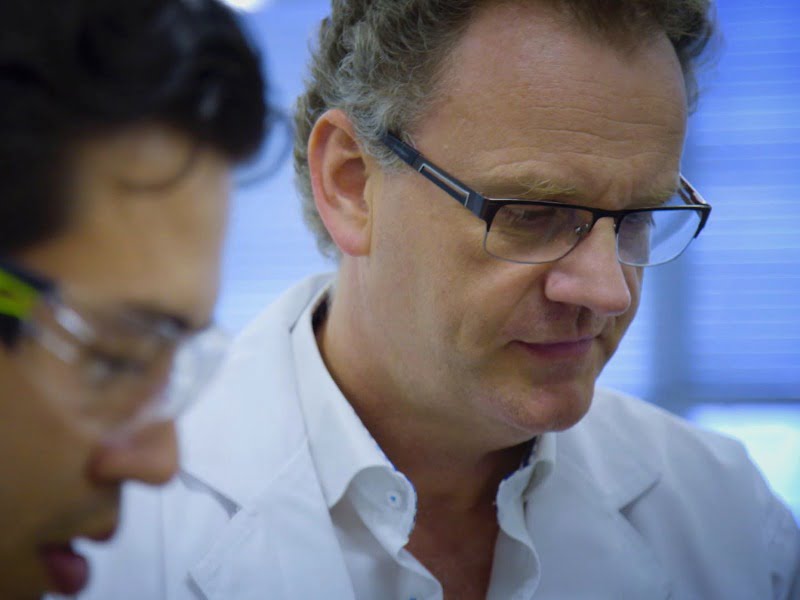Of all the honours handed out at the prestigious Prime Minister’s Prizes for Science awards, the $250,000 Prize for Innovation never fails to capture the imagination for its recognition of a positive impact on industry.
In 2020, the Prime Minister’s Prize for Innovation went to a Sydney University professor of chemistry Thomas Maschmeyer, who was recognised for translating his outstanding fundamental research into two pioneering technologies: the Catalytic Hydrothermal Reactor (Cat-HTR), and zinc-bromide energy storage design.
In relation to Cat-HTR, Professor Maschmeyer – together with large and varied teams – not only improved the understanding of their fundamental discoveries but translated them into a process with global implications. An Australian plant to deliver this technology is now being designed with Licella’s joint venture, IQRenew.

Cat-HTR has attracted $100 million of international investment for its development ($85 million of this in Australia). Licella has created near 50 full- and part-time jobs in Australia, and another 15 overseas.
The Cat-HTR development addresses the sustainability of liquid fuel and chemical supplies by using renewable waste or end-of-life plastic inputs to support a circular economy. This reduces carbon dioxide emissions and plastic waste in the environment.
Professor Maschmeyer’s zinc-bromide gel battery design is unlocking the potential of renewable energy and a low-carbon society by facilitating safe, low-cost, high-efficiency energy storage.
This innovation launched Gelion Technologies, a company that has raised $21 million over five years in local and overseas financial markets and employs 25 staff (two-thirds of whom are directly engaged in either research or technology development).
Gelion’s Endure Zinc-Bromide batteries are optimised for stationary energy storage, and to power off-grid and micro-grid installations for a range of industrial, agricultural (e.g. irrigation or desalination) and residential purposes.
The PM’s Prize for Innovation was added to the Prime Minister’s Science Prize by Malcolm Turnbull, and sought to honour outstanding translation successes.
The 2020 Prize for Science, meanwhile, was awarded to a team that was instrumental in the world-first detection of gravitational waves.
Emeritus Professor David Blair, Professor David McClelland, Professor Susan Scott and Professor Peter Veitch from the Australian Research Council Centre of Excellence for Gravitational Wave Discovery received the $250,000 prize for their contributions to the international effort that led to the 2015 discovery.
The team was involved in a number of ways, from designing systems to ensure the stability of high-powered laser beams to developing mathematical models used to identify the source of the first signal detected.
The Prime Minister said the discovery embodied the best of Australia’s scientific community.
“This year more than ever we have turned to our scientists in the face of one of our biggest challenges in recent memory, the COVID-19 pandemic,” Mr Morrison said.
“Discoveries such as the detection of gravitational waves were led by Australian technology and insight, and practical applications of scientific breakthroughs will continue to play a vital role in ensuring that science, innovation and education are key components of Australia’s economic future.
“Australia’s scientific community is and will continue to be at the forefront of Australia’s recovery and the recipients are a testament to the incredible work undertaken by our nation’s scientists.”
Additional prizes presented on the night were:
- The $50,000 Prime Minister’s Prize for Excellence in Science Teaching in Secondary Schools was presented to Willetton Senior High School (WA) teacher Darren Hamley, for his work establishing extracurricular programs to help students relate their scientific learnings to real-world applications.
- The $50,000 Prime Minister’s Prize for Excellence in Science Teaching in Primary Schools was presented to Bonython Primary School (ACT) STEM Specialist Teacher Sarah Fletcher, for her outstanding contribution to not only the school’s STEM program but also the wider education community.
- The $50,000 Frank Fenner Prize for Life Scientist of the Year was presented to Peter MacCallum Cancer Centre clinician-scientist Professor Mark Dawson for world-leading research in the field of epigenetics, including the development of new treatment strategies and therapies for blood cancers.
- The $50,000 Malcolm McIntosh Prize for Physical Scientist of the Year was presented to UNSW Scientia Associate Professor Xiaojing Hao, who has emerged as a world-renowned leader in thin-film solar photovoltaics. Associate Professor Hao’s work developing more environmentally friendly and efficient solar cells has set global records for energy conversion efficiency.
- The $50,000 Prize for New Innovators was presented to Flinders University Associate Professor Justin Chalker for his invention of a new class of polymers that turn waste plastics into global sustainability solutions. These include a range of materials that can remove mercury from polluted soil and water, help absorb oil from ocean spills, and provide more effective slow-release fertilisers.
Do you know more? Contact James Riley via Email.

